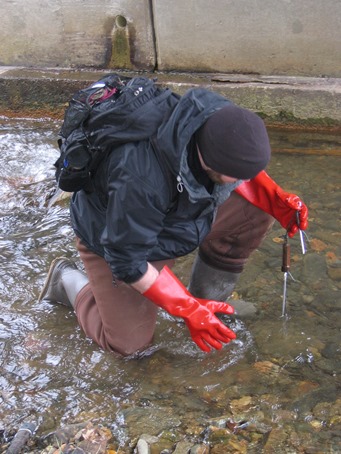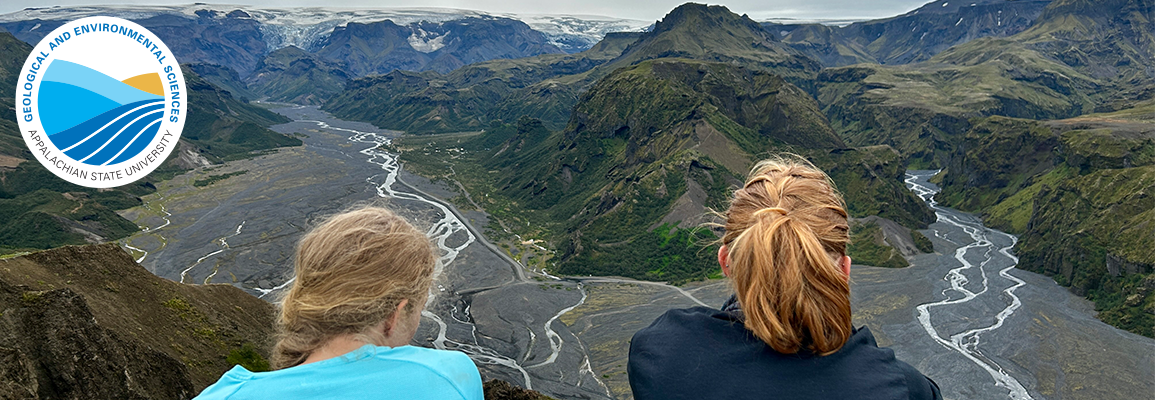 What do Geology and Environmental Science have to do with Sustainability?
What do Geology and Environmental Science have to do with Sustainability?
According to the US Environmental Protection Agency, sustainability requires that we "have and will continue to have the water, materials, and resources necessary to protect human health and our environment" while maintaining a robust economy and a just society. To ensure continued access to those precious resources, it is vital that we understand these earth systems and processes that create or maintain them.
A carbon-neutral future is going to rely heavily on mined minerals which are required for green tech and green energy solutions.
Geology is about more than just rocks. Environmental Science is about more than just wildlife conservation. To study Geology is to become intimately acquainted with the earth and its many resources. Environmental Science is a bit more interdisciplinary, but studies all aspects of the natural world on the Earth's surface.
Appalachian State University prides itself on its commitment to creating a sustainable campus, one that finds a balance between the health of the environment, the economy, and society, here in the beautiful mountains of western North Carolina. AppState is consistently listed as a top “Green University” by the Princeton Review and the Sierra Club.
Our Courses
As part of the Geology and Environmental Sciences degree tracks and as part of the General Education curriculum, we offer numerous courses related to sustainability, climate change, natural resources, water quality and quantity, and the natural environment. Click here to see the sustainability-related courses taught in the Geological and Environmental Sciences Department.
Our Research
Through examination and investigation of earth systems and resources, our research plays an integral part of this University’s commitment to sustainability both on campus and beyond. Our research includes:
Water – Water resources are a major consideration in achieving sustainability. Many of our faculty are engaged in the study of water, answering questions like:
- what geologic processes affect water quality and quantity?
- how do local policy decisions affect the water quality and behavior in Boone Creek?
- how will climate change influence water resources in this region, throughout the state of NC, and globally?
Earth Materials and Mineral Resources - If you can’t grow it, you have to mine it. Meeting the needs of our ever changing local, regional and global economy necessarily involves exploration and use of earth and mineral resources. Traditionally, fossil fuels (coal, oil, natural gas) have been the go-to resources for global energy needs, and raise sustainability issues in that they are finite resources, their use contributes to greenhouse gas production, and extraction of these resources (through surface and subsurface mining, drilling on- and off-shore, and hydraulic fracturing) raises concerns about pollution of other precious resources, such as drinking water. But even renewable energy sources require use of earth materials. Wind, hydroelectric, solar—all of these require equipment, the component parts of which are derived from earth materials. The same is true for any technology we have, from cell phones to laptop computers to the cars we drive. The work of geologists who study and develop these renewable energy resources will help to strike a balance between energy needs, the economy, and the environment.
Climate – We cannot hope to understand human impacts to a changing climate without first understanding earth’s history of climate change, or paleoclimate. Work done by geologists is critical for understanding the complex systems that impact both global and regional climate. Studies of climate are by nature interdisciplinary - they often require knowledge of a combination of sub-disciplines such as geochemistry, paleontology, sedimentology, geochronology, tectonics, geophysics, hydrology, physics, chemistry, biology, and math.
Land use - How do humans influence landscapes? How does the topograhy and underlying geology influence the natural resources available to exploit? What happens in these environments if they are disturbed? None of this can be determined without geologists and environmental scientists, who study and map the Earth's surface and make connections between land use, resources, and stewardship.
